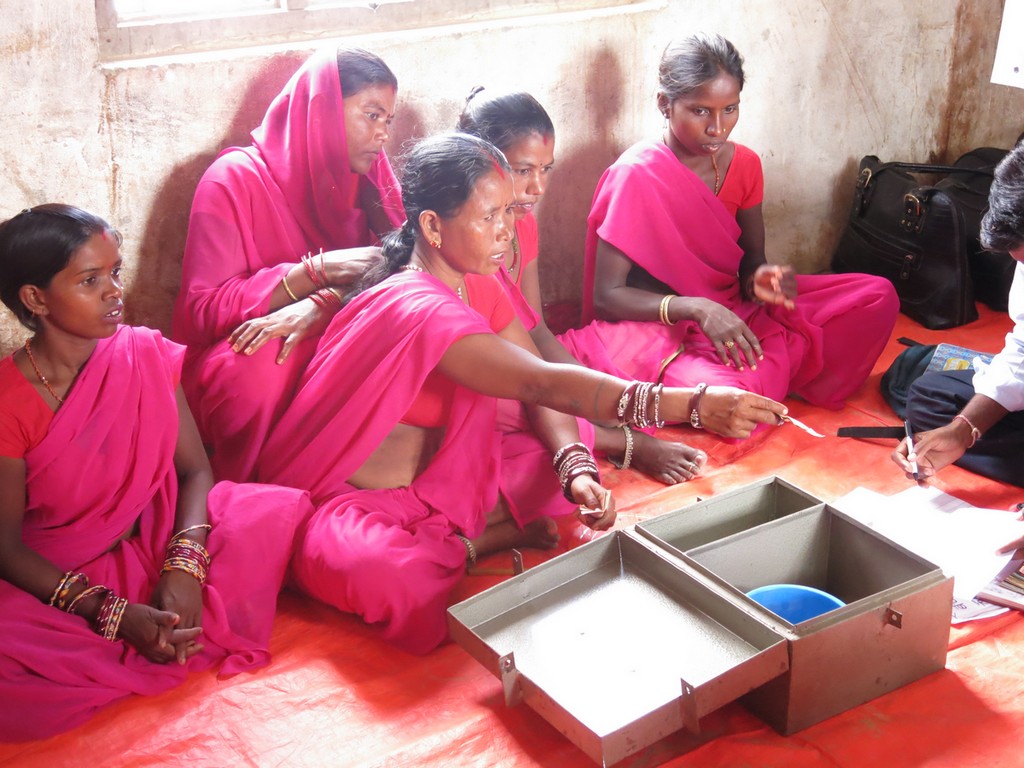Changing fortunes in rural Nepal – Part 2

Here is the second part of an article written by an intern from an American organization that is working with our partner Women for Peace and Democracy – Nepal. Here is the first part. A PDF of the full article may be found on the WPD – N website.
While in Bindhi, I attended two different meetings, one each for the two different women groups there. During the first meeting, the nearly 30 women were all listening, involving themselves in the process of discussing their savings and loans. One woman and the trainer were handling the money, and each woman would come to them to save her 50 rupees for the month. What impressed me about this first group was their willingness to clearly speak out, ask questions, and defend themselves. The woman next to me and the trainer were handling all of the money, and this woman was doing most of the counting. At one point, the trainer accidentally counted someone’s money back wrong, and the women noticed, telling him he had made a mistake. Not only are they easily counting money, they are paying attention and taking control of their savings.
The second group is part of what is known as the “untouchable” caste, and as such they are often denied many of the opportunities to which others have access. Though their meeting was slightly more disorderly than the first, it was still impressive to see the progress they had made. These women are saving their own money, repaying loans, and starting businesses. Many had purchased goats, and learned how to raise them, keep them healthy, and breed them. Goat raising as a small-scale business may not seem to have much income-generating potential, but it provides a woman with the ability to make money, allowing her to feed her family and send her children to school.
Above all, these activities provide these women with confidence. They give them the ability to take care of their own needs, which provides them with dignity that they were not allowed before. Seeing them in this meeting, clearly aware and knowing how to take care of their own money, they seemed empowered. But they also seem all too aware of the rampant corruption that is common across Nepal and in their community. They protect themselves against it by assuring no single person has too much access to the funds. This group does this with a large lock box. One person keeps the box safe, but the box has three locks on it. Each lock has a different key, each given to a different person. This way, all three people must be present to open the box. It’s a clear sign that this group knows the value of what they are trying to do, the value of protecting their own and their community members’ money.
Ultimately, this whole idea is about “teaching a man to fish”. The old proverb states, “If you give a man a fish, you feed him for a day, but if you teach a man to fish, you feed him for life.” We may be teaching these women to fish, but they in turn are teaching their children themselves. The ultimate goal may not be attainable in this generation. But if these women can make their families’ lives better, their children have a better chance to escape the poverty and discrimination that their parents faced. What looks likes small changes may in fact change the future for generations to come
